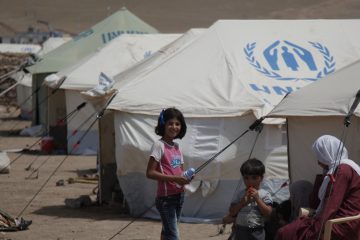
Overcoming challenges to the Inclusion of Persons with Disabilities in Emergencies
Including persons with disabilities in emergency responses is a shared responsibility of all humanitarian actors As discussed in the first article of this series, persons with disabilities have been overwhelmingly excluded from humanitarian aid in different crises worldwide. In general, services provided by governments and NGOs are not accessible to these individuals, increasing their vulnerabilities during emergency responses. Activists and NGOs, however, have been trying to change this unacceptable situation. Actors such as International Disability Alliance (IDA), International Disability and Development Consortium (IDDC), Humanity & Inclusion, Christian Blind Mission (CBM), HelpAge International, Light for the World, Sightsavers have been leading an international movement to guarantee that the needs of persons with disabilities are met during humanitarian crises. This article will introduce and contextualize these efforts, and …

How humanitarian crises increase the vulnerability of persons with disabilities
The World Health Organisation (WHO) estimates that 15 percent of the global population (or over 1 billion people) have some form of disability. These figures can grow even larger due to natural disasters or conflicts, when more people are exposed to debilitating accidents or violence. Despite general awareness amongst different actors that persons with disabilities are more likely to become subject to a vast range of risks during humanitarian crises, few practical actions are usually taken to reduce these perils. Many actors do not comply with the recommendations from international agreements on ensuring the participation of persons with disabilities in programming, nor do they recruit technical experts on inclusion. With that in mind, this article discusses the exclusion of persons …
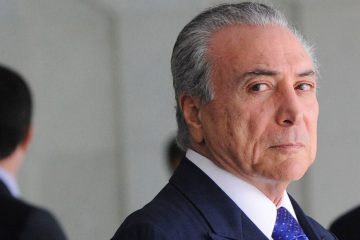
Will a different Brazil emerge from its political crisis?
It is tempting to speculate about what will happen next in Brazil after the abrupt and tantalizing unfolding of a new chapter in the country’s ongoing political crisis. Yet, it is important to first pause to note what is at stake: the country has just entered one of the most uncertain moments of its modern history. The foundations of the republic are crumbling before our eyes and the country’s long-term future is as unclear today as it has ever been. What the future of Brazil will be depends on the next few days and weeks. There is mounting pressure on President Michel Temer after the audio of a private conversation between him and Joesley Batista, co-owner of JBS (the world’s …
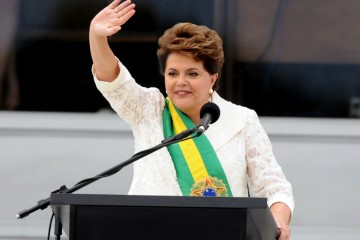
Impeaching Brazil’s president: A tragedy foretold
The historical defeat of Dilma Rousseff on 17 April, when more than two-thirds of Brazil’s lower House of Congress voted to oust the country’s first female president, is not the end of the debate about whether she committed a crime that would constitutionally justify her impeachment. The opposition claims that the president, elected with more than fifty-four million votes, used accounting tricks to artificially lower the government’s budget deficit. Her supporters argue that other Brazilian presidents have used the same strategy before. The final word on the impeachment motion will be given shortly by the Senate, but at the end of the day, many Brazilians are still not convinced that Ms Rousseff’s impeachment is based on solid constitutional grounds. Did …
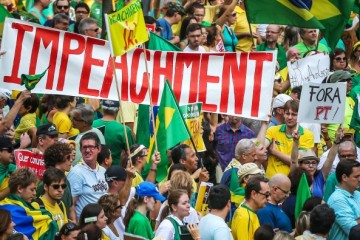
Brazil’s delicate foundations are falling apart like a house of cards
A cornered government, a legislative short of legitimacy, a contaminated judiciary and polarised protesters put Brazilian institutional balance to the test. Immoral deals, Machiavellian manoeuvres and outright dishonesty. No wonder comparisons between Brazilian politics and the American TV show House of Cards are tempting and widespread. Even Netflix made the connection to promote the release of its fourth series in Brazil. This clever marketing initiative prompted Maurício Santoro, a political scientist, to joke on Twitter that “Netflix is the only institution enjoying the trust and esteem of Brazilians these days.” But Brazil’s plight is not fiction, and the quip accompanies a concerning realisation. For some time, even in the face of turmoil and economic meltdown, it was possible to believe …
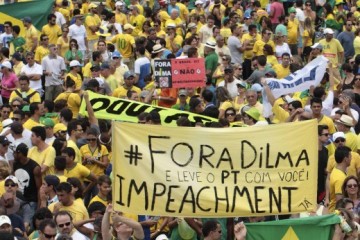
Have the mass media fuelled Brazil’s turmoil?
As any country with a minimally functioning democracy, Brazil has an ambivalent relationship with its mass media. And as in all countries with a minimally functioning market economy, Brazilian mass media have been disrupted by personalised digital platforms. Understanding To two elements, and how they became entangled, is essential if we are to grasp the role of the media in the social turmoil that has engulfed Brazil in the past year or so.
But in spite of their deep flaws, newspapers and broadcasters cannot be blamed for the toxic political environment that has taken over the country.

How dangerous is North Korea?
Fourth nuclear test re-energises bellicose tone against the US and South Korea A few announcements made by North Korea in the past two months have been making the international community uneasy. Last January, the country said it had successfully carried out a hydrogen bomb (H-bomb) test as an ‘act of self-defence’ against the US, claiming to have gained the capability to ‘wipe out the whole US territory’. In February, Kim Jong-un’s regime launched a satellite into space in a movement considered by specialists as a cover up for a ballistic missile test. Albeit Pyongyang tends to overstate its accomplishments, the satellite launch and the alleged detonation of a hydrogen bomb represent, combined, a considerable leap for North Korea’s military capabilities. If converted …









